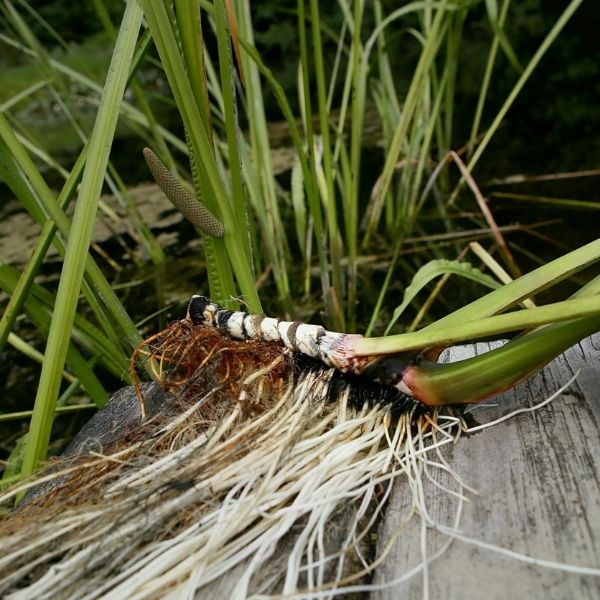Acorus calamus, commonly known as Calamus, Sweet Flag, or Vacha, is a perennial herbaceous plant native to Asia, Europe, and North America. It is a member of the Acoraceae family and has been used for centuries in traditional medicine and various cultural practices. Here are some key features and uses of Acorus calamus:
Morphology: Acorus calamus has long, sword-shaped leaves that grow in clumps from a central rhizome. The leaves are aromatic, reaching a height of about 1 to 1.5 meters. The plant produces small, inconspicuous flowers on a spadix and a spathe.
Medicinal Uses: Acorus calamus has a long history of medicinal use in traditional systems of medicine, including Ayurveda, Traditional Chinese Medicine, and Native American medicine. The rhizomes and roots of Acorus calamus are considered to have various therapeutic properties. They are used for their carminative, digestive, stimulant, expectorant, and sedative effects. Calamus is also believed to improve memory and cognitive function.
Aromatic and Flavoring Agent: The rhizomes of Acorus calamus possess a distinct aromatic fragrance. They are used as a natural flavoring agent in the food and beverage industry, particularly in herbal teas, liqueurs, and bitters. The essential oil derived from the plant is also used in perfumery and aromatherapy.
Cultural and Ritual Uses: Acorus calamus has cultural and ritual significance in various societies. It has been used in religious ceremonies, spiritual practices, and as an offering in rituals. In some cultures, Calamus is associated with purification, protection, and enhancing mental clarity.
Insect Repellent: Acorus calamus has insect-repellent properties. The essential oil obtained from the rhizomes is known to repel mosquitoes, ants, and other insects. It can be used as a natural alternative to chemical-based insect repellents.
Wetland Restoration: Acorus calamus is a wetland plant that plays a role in ecosystem restoration. It helps stabilize soil in wetland areas, prevents erosion, and provides habitat and food for various aquatic organisms and birds.
Caution: It's important to note that Acorus calamus contains several bioactive compounds, including asarone, which can be toxic if consumed in large amounts. Therefore, caution should be exercised when using Acorus calamus internally, and it is advisable to consult with a healthcare professional or an expert in herbal medicine before using it for medicinal purposes.
